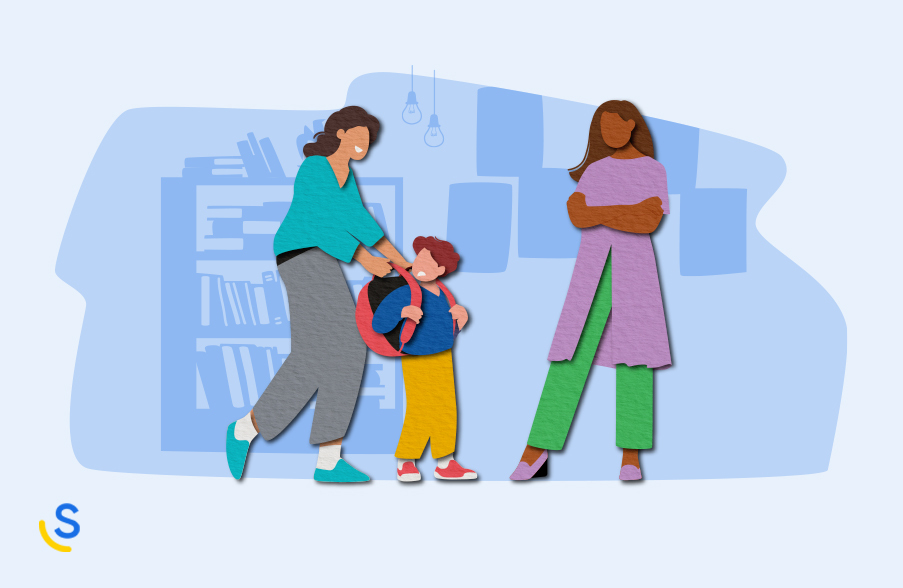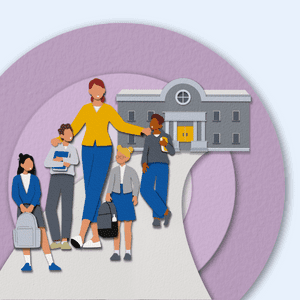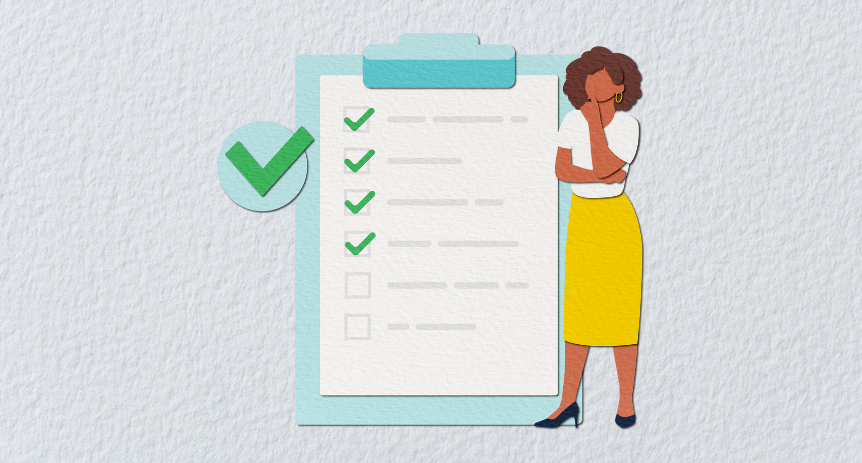Navigating the role of a substitute teacher can be quite a balancing act, especially when it comes to communication. One of the trickiest aspects to master is when and how to effectively communicate with parents. Substitute teachers often wonder about their place in the parent-teacher communication line. Traditionally, this responsibility lies with the regular teacher, but sometimes circumstances require a substitute to step in.
This guide aims to clarify those moments and offer practical tips for maintaining clear and professional communication with parents, ensuring a smooth and productive school day for all involved. Understanding these guidelines not only helps in managing the classroom effectively but also in building trust with both students and parents.
Importance of communication between substitute teachers and parents
Effective communication between substitute teachers and parents is vital to maintaining a consistent, supportive environment for students. This collaboration helps ensure that the educational process continues smoothly, even when the regular teacher is absent.
Building trust and collaboration
When substitute teachers communicate effectively with parents, they build trust and establish a collaborative relationship. Regular updates about classroom activities and individual student progress can reassure parents that their child’s education is in capable hands. This trust is especially important when a substitute is in the classroom for an extended period of time. Clear, open communication methods might include:
- Sending brief emails summarizing the day’s activities
- Making phone calls for more urgent matters
- Using school-approved communication apps
Ensuring student success
Substitute teachers play an important role in maintaining the learning momentum initiated by regular teachers. By keeping open lines of communication with parents, subs can provide updates on coursework, discuss challenges, and celebrate achievements. This ongoing dialogue ensures that students remain engaged and supported, promoting an atmosphere where education thrives even in transitions.
Why would a substitute teacher need to communicate with parents?
There are several scenarios in which a substitute teacher might find it necessary to reach out to a student’s parents. Maintaining a bridge between what happens at school and what happens at home can be instrumental for various reasons.
Situational examples
- Behavioral issues: If a student displays significantly disruptive behavior, informing the parents can help address the situation more effectively.
- Academic concerns: Discussing any noticeable declines in performance or difficulties understanding new material can prompt parents to provide additional support at home.
- Incidents or emergencies: In case of an accident, health issue, or other emergencies, immediate communication with parents is imperative.
- Positive feedback: It’s also beneficial to contact parents to share positive observations and commendations, which can boost a student’s morale and motivation.
Communicating under these circumstances not only helps in managing the day-to-day challenges of the classroom but also aids in the overall development and well-being of the students.
Guidelines for substitute teachers when communicating with parents
Seeking permission from school administration
Before communicating directly with parents, it’s advisable for substitute teachers to seek approval from the school administration. This step ensures that all communication aligns with school policies and the role expectations set for substitutes. Administration can also provide specific directions or insights on the context of the situation, which can assist in crafting appropriate messages to the parents.
Communicating essential information only
When a substitute teacher needs to reach out to parents, it’s important to stick to the essentials. Sharing information should be limited to what parents need to know concerning that day’s events, like changes in dismissal times or urgent issues that occurred during class. Avoid going into extensive details about student behavior unless it’s something critical that needs immediate parental involvement. This approach helps maintain professional boundaries and ensures relevant information is conveyed without overwhelming parents with unnecessary details.
Respecting privacy and confidentiality
Substitute teachers must handle all student-related information with the utmost confidentiality. Discussions about student performance, behavior, or personal issues must be conducted privately and thoughtfully. It’s crucial that such sensitive information is not shared in public spaces or with unauthorized persons, including other parents.
Best practices for substitute teachers in parent communication
Using the school’s communication channels
Utilizing established school communication channels such as official email accounts, phone numbers, or parent portals ensures that all interactions are kept professional and secure. These channels also create a record of communication, which can be helpful if any follow-up is needed. Sticking to these methods helps maintain consistency in how parents receive information, regardless of who is in the teacher’s role.
Documenting communication for reference
Maintaining a record of what was communicated to parents and when is a good practice for any teacher, including substitutes. This record can include notes on what was discussed, any agreed-upon follow-up actions, and responses from parents. Documentation provides clarity and accountability, and can be useful in cases where information needs to be revisited or shared with the permanent teacher or school administrators.
Seeking feedback and guidance from permanent teachers
Whenever possible, substitute teachers should consult with the permanent teachers about the extent and form of communication with parents. This can include specific topics that might need addressing, preferred communication styles, and any ongoing issues or concerns with students. Learning from those who know the students and classroom dynamics best will help ensure communication with parents is successful and reflective of the educational guidelines and standards of the school.
When to avoid communication with parents
While it’s important to maintain open lines of communication in educational settings, there are certain times when direct contact between substitute teachers and parents might not be appropriate or necessary. Here are some scenarios where substitutes should refrain from reaching out directly:
- Routine classroom management: For everyday issues like homework questions or minor behavior corrections, it’s best to rely on notes for the regular teacher, who understands the students’ history and parent-teacher relationship dynamics better.
- Sensitive information: Any matters that involve sensitive student information should generally be left for the full-time teacher or administration. This includes discussing academic performance, behavior issues, or anything that requires detailed knowledge of the student’s educational and personal background.
- Disciplinary actions: Handling severe behavioral issues or discipline should not be tackled by a substitute. These are ideally managed by the school admin or the regular teacher who can enforce the school’s consistent disciplinary protocols.
In each case, documenting the situation and leaving detailed notes for the returning teacher is essential. This ensures that the regular educator can follow up appropriately and maintain continuity in home-school communication.
Navigating the role of a substitute teacher comes with its own unique challenges, especially when it involves communication with parents. Remember, your primary role is to maintain the continuity of the classroom environment and manage any immediate issues. When engaging in dialogue with parents, stick to the facts, remain professional, and always ensure you’re following the school’s policies. By understanding the appropriate circumstances for communication and applying these best practices, you can foster a positive and productive learning environment, even in disruptive classroom situations.






